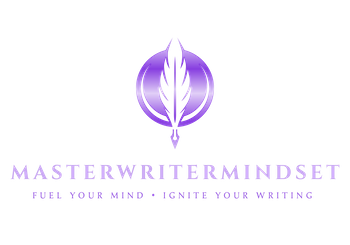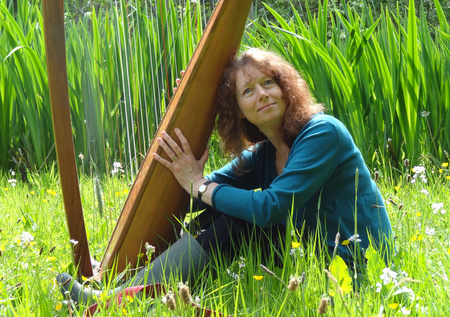I think I was born with the creative bug.
As a child I was always making something—paintings, crafts, songs, stories—and I get grouchy when creativity isn’t happening in my life.
Two ingredients are really important for creativity to flourish, and they’re pretty difficult to find: time and headspace. I’m lucky that I don’t have a day job now, otherwise I’m not sure how I’d manage.
I’ll admit I’ve a strong addiction to day-dreaming. But this does count as work for writers (that’s what I tell myself, anyway). Wonderful stories can emerge if you just play about with ideas and let your imagination run wild.
My Writing is More Inspired When I’m Reading
My writing is always more inspired when I’m reading a good novel.
I’m a slow reader and I think I deliberately absorb vocabulary and the rhythms of good sentences and interesting voices.
Real life is important, too. I believe in getting out and experiencing things rather than just being stuck behind your desk all the time. The key is to listen to everything, observe everything. When any drama occurs I try to notice my own reactions and other people’s. I watch how it affects relationships, choices and future attitudes.
It’s all potential material.
I Become Very Involved with My Characters
The process of writing a novel is something I find endlessly fascinating.
I become very involved with the characters I’ve created and I want to get to know them better. I learn a lot about myself at the same time.
I’m naturally a private person—so private that it sometimes feels as if there’s another person hidden deep inside. I’m often surprised to discover how passionately I feel about things; for example environmental issues, the value of creativity and the importance of putting yourself into other people’s shoes.
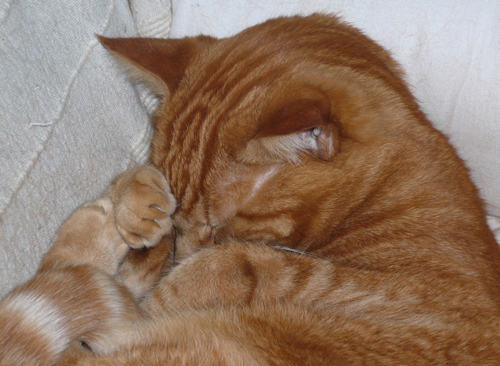
The Hardest Part About Being a Writer: the Isolation
Probably the hardest thing about being a writer, for me, is the isolation.
I am so grateful for the other half of my creative life, harp-playing. I play and sing in a band so the mutual support is there, and I also get to see the reaction of my audience straight away.
Writing isn’t like that. You have to do it on your own. Self-doubt attacks regularly and you don’t get the affirmation of seeing the faces of your readers while they’re experiencing your book.
It’s fabulous being paid to do what I love doing, but it can also be stressful. Even when I have encouraging feedback (and it’s been amazing so far) I live in dread that the muse will desert me. I worry that I simply won’t be able to squeeze any more ideas out of my head.
Writing is full of emotional ups and downs. Even success can bring on a bout of grief. The people who would have been most proud of me for publishing my first novel, my father and my mother, aren’t around anymore. I would have loved to tell them that I have finally put something good into the world.
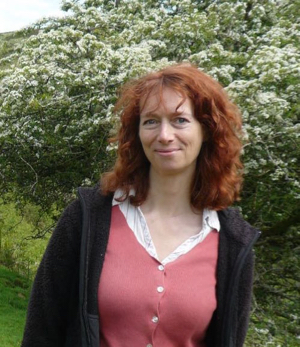
Coping Mechanisms for a Writer: Yoga, Walking, Music, and Cats
I welcome all these emotional challenges; they’re part of the course. You can’t be a writer if you don’t feel things deeply.
But it’s important not to get so swallowed up in emotion that you can’t work. I find it helps to communicate with other writers, either in person or through social media. They understand and are often experiencing similar stresses. The writing community on Twitter is a great support network.
Other coping mechanisms include walking, running, stretching and yoga. I should do a lot more of these but most of my meager supply of self-discipline is used up on the writing and harp practice.
I get outside every day to breathe deeply and look at trees and hills. This seems to generate ideas as well as calming the mind.
Then there’s my harp. Music always helps because it expresses things you can’t always express in words. Stroking a very warm, purry cat helps, too. My ginger friend, Purrsy, is a very effective therapist. He also makes me laugh, and laughter is extremely healthy.
Writing Tends to Bring on Physical Pain
I suffered a long-term illness for many years when I was unable to do anything because I was in so much pain. I was fixed by surgery and I’m so much better now but it has left a legacy.
My neck is terrible; it creaks and cracks whenever I move my head and wow, how it hurts! I take several painkillers a day to deal with it and wish I didn’t have to.
I’m not good at postural awareness and do tend to hunch over my desk, especially when I’m getting carried away by the story I’m writing.
The walking, running, stretching and yoga help with the aches—but the harp-playing doesn’t! The harp is always leaning on your right shoulder while your head is twisted round to look at the strings. Still, the harp provided the first inspiration for my book and it brings me heaps of joy, so I can hardly complain…
Winning a Week at a Writers School Was Better Than Winning Money
I’m lucky to have had many joyful moments of writing triumph, but the best was probably my very first competition win.
It was a for a short story and the prize was a free week at Swanwick Writers Summers School, the oldest and friendliest summer writing course in England.
It was so much better than winning money (which would have been absorbed into household bills) because it fed back into my writing. I had the most wonderful time there, learned a lot and met many other writers. Their support over the years has been incredible.
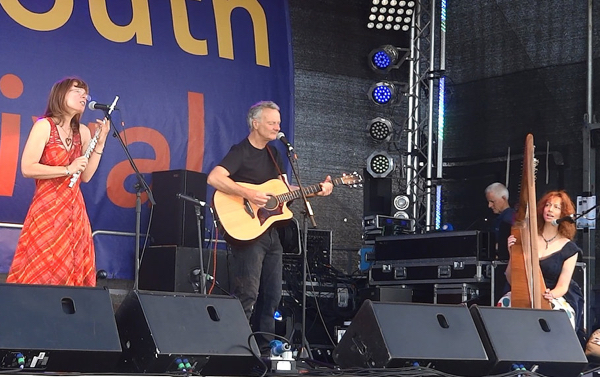
Advice for a Young Writer: Keep Writing!
These are my tips for anyone who wants to be a writer: Keep writing. Write because you love it.
It isn’t glamorous and it isn’t about money, fame or recognition. Make the writing as good as you possibly can, no matter how long it takes—and it will probably take far longer than you think.
If you want your work to be read, be brave. Seek feedback from anyone who’s willing to give it, listen to them carefully and consult with your heart and guts about what’s right for your writing.
When it’s ready, send it out to competitions, to magazines, to agents and to anywhere else that occurs to you. Get used to rejection; it’s normal. Don’t take it too seriously.
If you keep on writing you’ll keep getting better—and so will your chances. Above all, just enjoy it!
* * *
Hazel Prior is a harpist based in Exmoor, England. Originally from Oxford, she fell in love with the harp as a student and now performs regularly. She’s had short stories published in literary magazines, and has won numerous writing competitions in the UK. Ellie and The Harpmaker is her first novel and she is working on her second.
For more information on Hazel and her work, please see her website or follow her on Twitter.
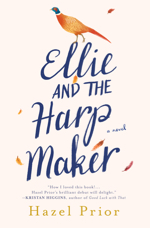 Ellie and the Harpmaker: A rich, heartwarming and completely charming debut that reminds us that sometimes, you don’t find love–love finds you.
Ellie and the Harpmaker: A rich, heartwarming and completely charming debut that reminds us that sometimes, you don’t find love–love finds you.
Dan Hollis lives a happy, solitary life carving exquisite Celtic harps in his barn in the countryside of the English moors. Here he can be himself, away from social situations that he doesn’t always get right or completely understand.
On the anniversary of her beloved father’s death, Ellie Jacobs takes a walk in the woods and comes across Dan’s barn. She is enchanted by his collection. Dan gives her a harp made of cherrywood to match her cherry socks. He stores it for her, ready for whenever she’d like to take lessons.
Ellie begins visiting Dan almost daily and quickly learns that he isn’t like other people. He makes her sandwiches precisely cut into triangles and repeatedly counts the (seventeen) steps of the wooden staircase to the upstairs practice room. Ellie soon realizes Dan isn’t just different; in many ways, his world is better, and he gives her a fresh perspective on her own life.
Available at Amazon, Barnes & Noble, IndieBound, and Penguin.
